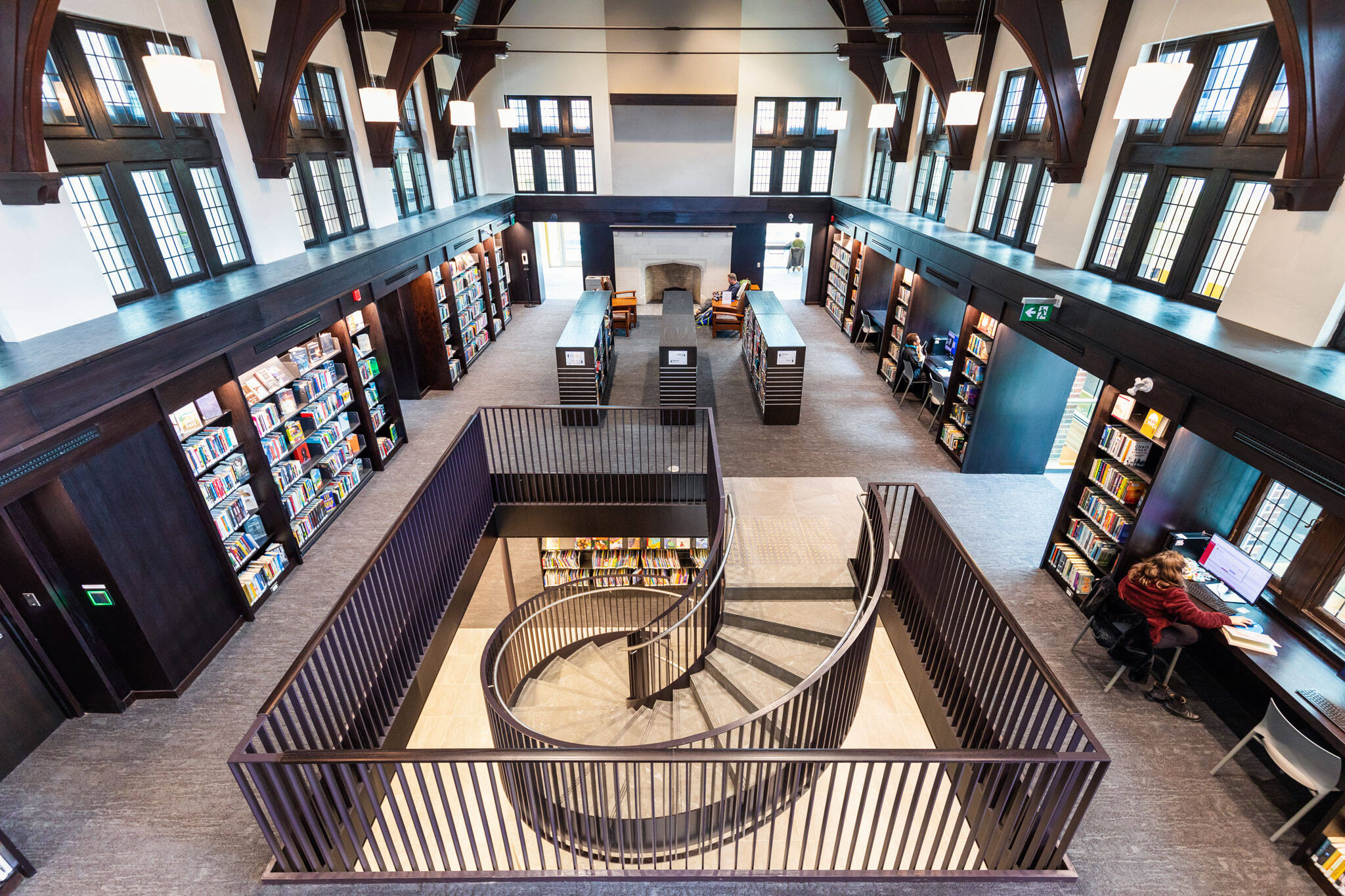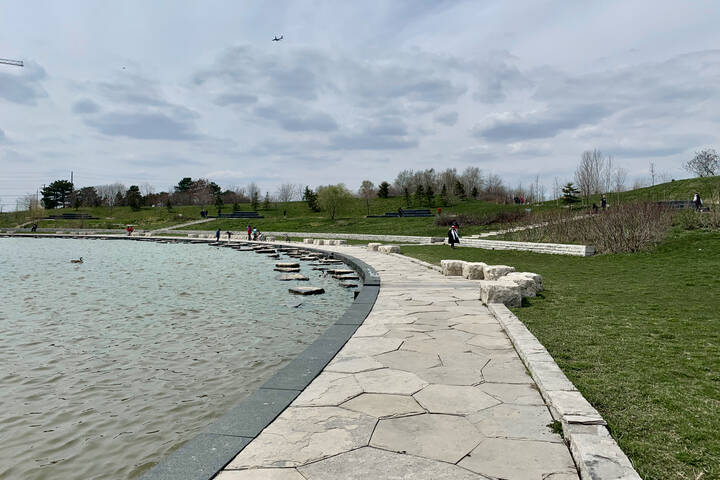
Toronto library closed for 4 years finally reopened and here's what it's like inside
A community has gone four years without its local Toronto Public Library branch, but the wait is finally over as the Wychwood Branch near Bathurst and St. Clair finally reopens its doors.
The branch was shuttered to accommodate a reconstruction and expansion project in 2018, and after a long four years, it's back and better than ever, quietly reopening to the public on October 3.
The project, led by Shoalts and Zaback Architects, entailed the preservation of the original 1916 heritage building that housed the pre-expansion branch, increasing its size by 9,000 square feet to 17,000 square feet, and adding a long list of new features and services that greatly improve its use for the surrounding community.
Among the improvements, the expansion redesigned the floor layout to offer barrier-free access, along with the addition of new washrooms, age-zoned areas, quiet study, lounge and reading space and flexible spaces for collaboration.
But while the library has reopened, the project is not yet complete; a lot at the rear of the library, where a former lawn bowling field house was located, will be transformed with new outdoor amenity space in a second phase.
The Wychwood Branch will celebrate an official reopening on October 25, featuring open house activities beginning at 10 a.m.
Jack Landau
Latest Videos
Latest Videos
Join the conversation Load comments







